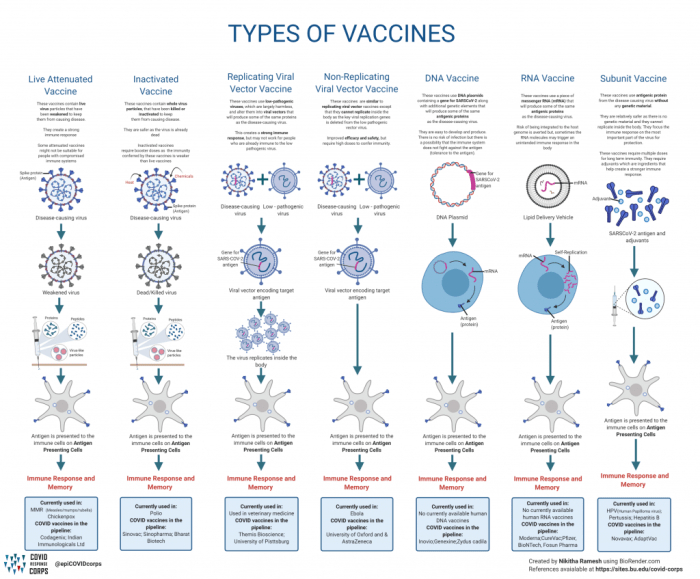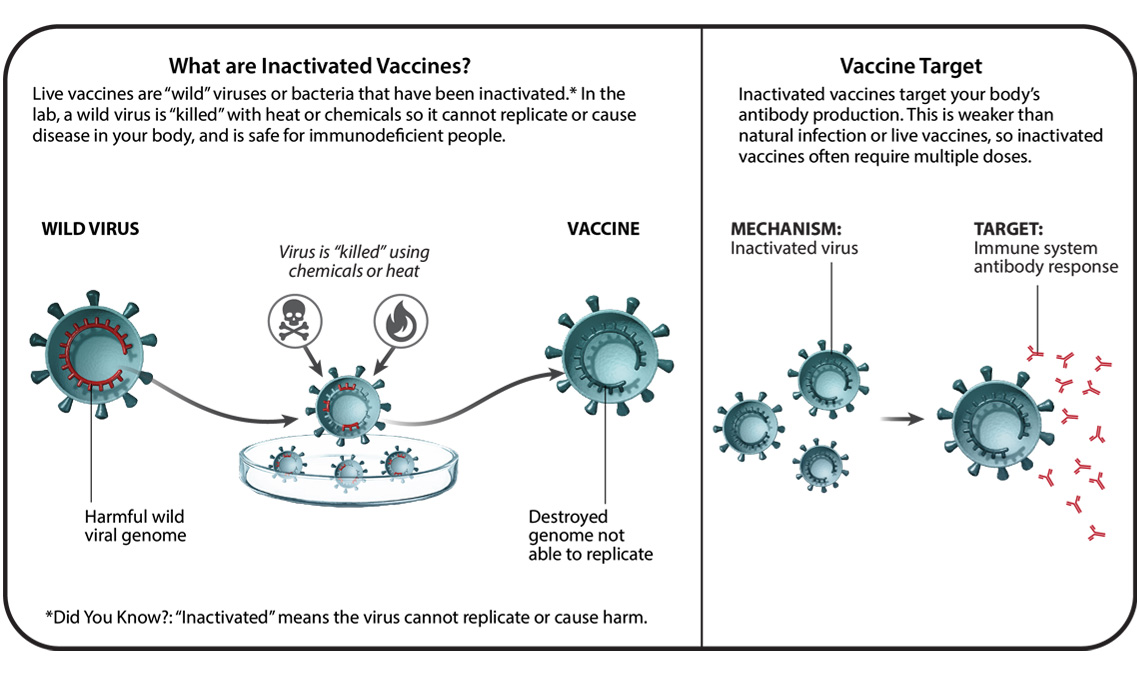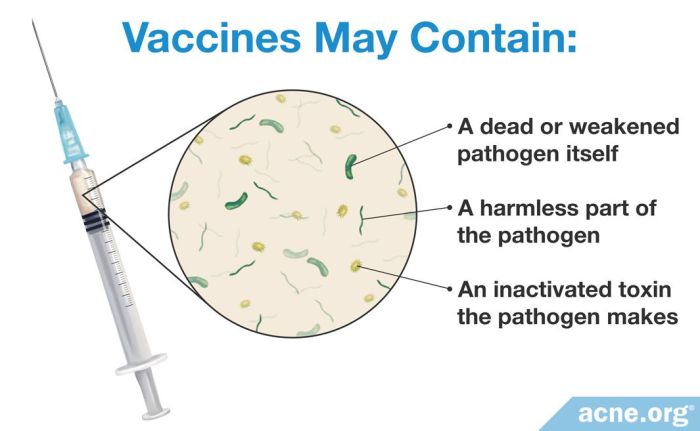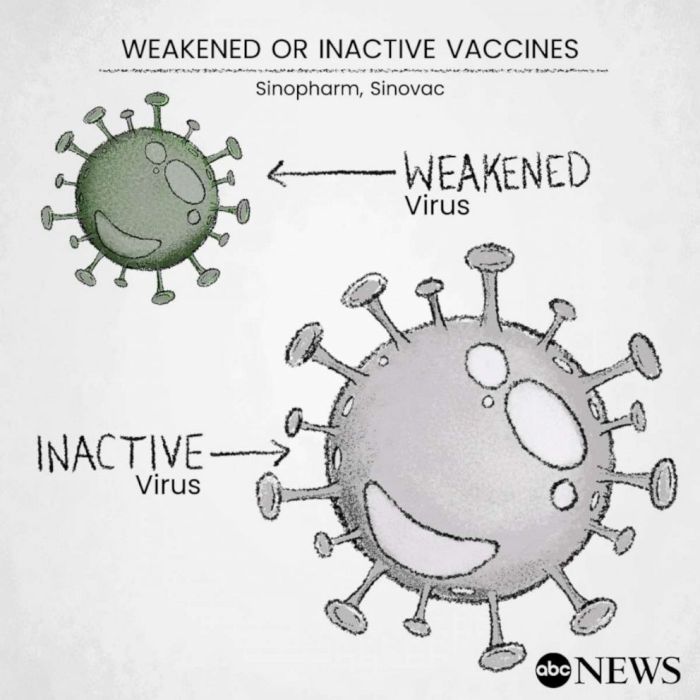Which best describes how a vaccine works apex – Vaccines are a critical component of public health, providing protection against a wide range of infectious diseases. Understanding how vaccines work is essential for appreciating their importance and making informed decisions about vaccination.
Vaccines introduce antigens into the body, which are recognized by the immune system as foreign. This triggers an immune response, leading to the production of antibodies that can neutralize the specific pathogen. Different types of vaccines use different mechanisms to introduce antigens, but the ultimate goal is to stimulate antibody production and provide immunity.
1. Introduction

Vaccines are biological preparations that stimulate the body’s immune system to protect against specific diseases. They contain weakened or inactivated forms of the pathogen (e.g., virus, bacteria) or their antigens (specific molecules recognized by the immune system). By exposing the body to these antigens, vaccines trigger an immune response without causing the actual disease.
2. Vaccine Mechanism

Role of Antigens
Antigens are molecules that are recognized as foreign by the immune system. When an antigen enters the body, it triggers an immune response to eliminate the invading pathogen.
Vaccine-Induced Antibody Production
Vaccines introduce antigens into the body without causing the disease. This stimulates the immune system to produce antibodies, which are proteins that recognize and neutralize specific antigens. Antibodies bind to the antigens and prevent them from infecting cells.
Types of Vaccines
- Live-attenuated vaccinescontain weakened forms of the pathogen that are unable to cause disease but can still trigger an immune response.
- Inactivated vaccinescontain killed pathogens that cannot cause disease but can still stimulate antibody production.
- Subunit vaccinescontain only specific antigens from the pathogen, not the entire organism.
3. Immune Response to Vaccines: Which Best Describes How A Vaccine Works Apex
Antibody Production by B and T Cells
When antigens are introduced by vaccines, B cells produce antibodies that bind to specific antigens. T cells help B cells produce antibodies and also destroy infected cells.
Memory Cells for Long-Term Immunity
After vaccination, memory cells are formed. These cells remember the specific antigen and can quickly produce antibodies if the body is exposed to the pathogen again, providing long-term immunity.
Herd Immunity
When a large proportion of a population is vaccinated, it reduces the spread of the disease. This is known as herd immunity, which protects even those who cannot be vaccinated due to health reasons.
4. Safety and Effectiveness of Vaccines

Safety Data, Which best describes how a vaccine works apex
Vaccines undergo rigorous testing and monitoring to ensure their safety. Data shows that vaccines are generally safe and effective in preventing various diseases.
Efficacy Data
Vaccines have been proven to be highly effective in preventing diseases such as measles, mumps, rubella, polio, and tetanus.
Addressing Concerns
Common concerns about vaccine safety have been addressed through scientific research and evidence. Vaccines do not cause autism or other developmental disorders.
5. Vaccine Development and Innovation

Ongoing Research and Advancements
Vaccine research is continuously ongoing to develop new vaccines for emerging diseases and improve existing ones.
Challenges in Vaccine Development
Developing vaccines can be challenging, especially for diseases with complex pathogens or rapidly mutating viruses.
Importance of Investment
Continued investment in vaccine research and development is crucial to ensure the development of safe and effective vaccines for future health threats.
Questions Often Asked
How do vaccines work?
Vaccines introduce antigens into the body, triggering an immune response and antibody production.
Are vaccines safe?
Yes, vaccines are rigorously tested and monitored to ensure safety.
Why is vaccination important?
Vaccination protects individuals from disease and contributes to herd immunity, reducing the spread of infection.